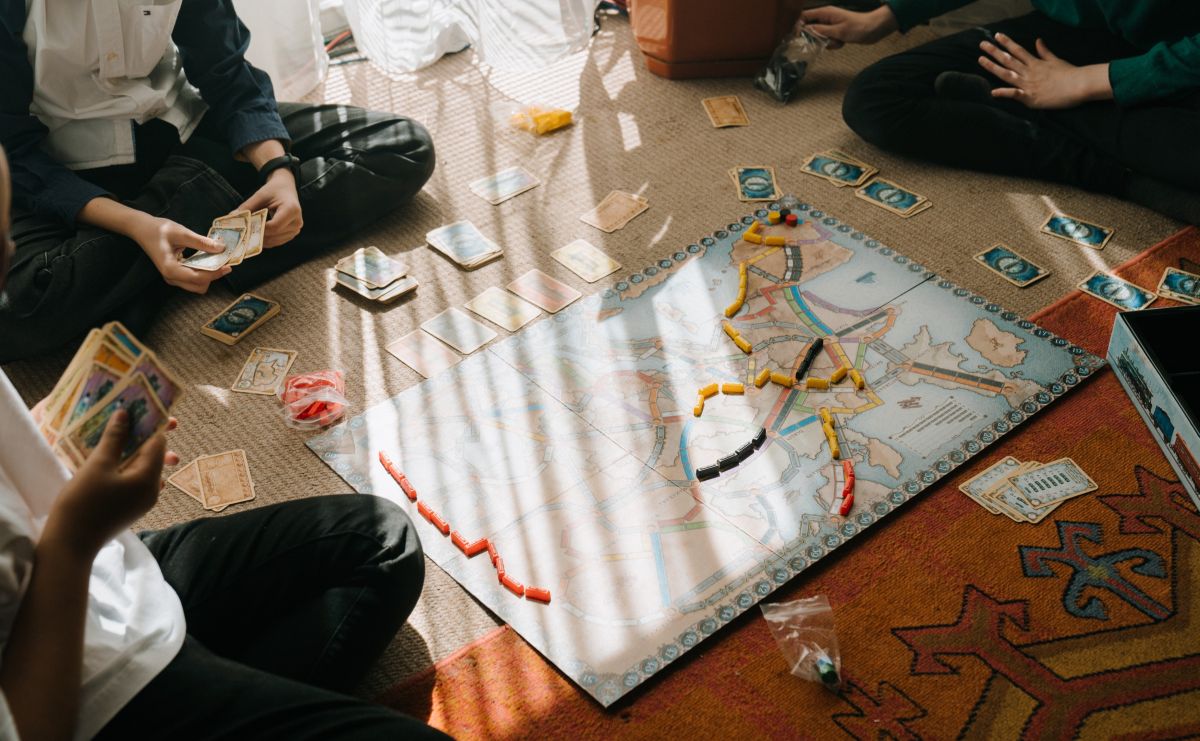Until very recently, I didn’t care much about board games. Why waste my time with boring, old board games when I could spend my time replaying one of the best classic games or one of the best relaxing games around?
You are probably like me – not giving board games that much of a thought. Why do so, in the end, when we have amazing visuals for jaw-dropping experiences immediately available? You can’t beat that with cards, cardboard and maybe some way-too-geeky figures, right? I mean, you can’t just use that thing called imagination to create a better world than your top AAA title can!
Well… it appears that I was wrong thinking this. Board games are absolutely spectacular and in the past few months I started to enjoy more and more of them and appreciate their true value. They’re indeed different – but not so much – compared to traditional video games. But they add that one important element: the social aspect. Especially during these troubled and strange times, that’s pure gold.
Now, I am eagerly looking forward to my weekly, Sunday meet-up with a few close friends to play one of the board games that we already have or find something new. I am even introducing new friends to board games regularly and so far none of them was even a bit disappointed.

Sure, we started with classic board games that everybody loves – things like Catan, Smallworld or Ticket to Ride, but then we slowly moved to more complex stuff like the Battlestar Galactica Board game, Gloomhaven, Mansions of Madness or Scythe. (Really, do take your time and search these games out!).
There are quick and fun board games, like Saboteur and extremely difficult ones like The Fallout Board game which proved such a challenge even to a Fallout freak like me. But in the end, everybody loves them – even though with my latest example, some people were put off by the game’s complexity.
For today, I decided to share 5 reasons why us gamers should definitely take a look at board games. We’ll end up loving them just as much as we love our regular games right now.
1. Video game-licensed board games have a far better track record than video game-licensed movies – and they are generally good.
Don’t even get me started on that much-maligned sub-branch of cinema that started life as a video game IP. Video game movies suck. They just do.
OK, so I have a weird soft spot for Super Mario Bros starring Bob Hoskins and John Leguizamo, and Christophe Gans’s take on Silent Hill at least got the look right… but generally, we all know that movies based on video games are duds.
As a whole, video game stories just don’t make good recipes for film scripts, no matter how groundbreaking they are in the interactive world. But they make excellent board games. Gears of War: The Board Game, Doom: The Boardgame and StarCraft: The Board Game are all highly regarded, even among cardboard purists. And yes, the latter does include the infamous Zerg Rush.
Not only are these games actually good, they’re also plentiful. The past few years have seen the release of a watershed of video game themed board games. Bandai has released a Resident Evil Deck-Building Game – think Dominion with the addition of Lickers and Wesker – as well as an Uncharted: The Board Game.
The list isn’t even near complete, and that’s without bothering to include more difficult-to define choices such as The Witcher Collectible Card Game (technically based on the book on which the games were also based) and the Universal Fighting System, a card-based cross-franchise brawler that features fighters from Street Fighter, Soul Calibur, Darkstalkers, Tekken and more.
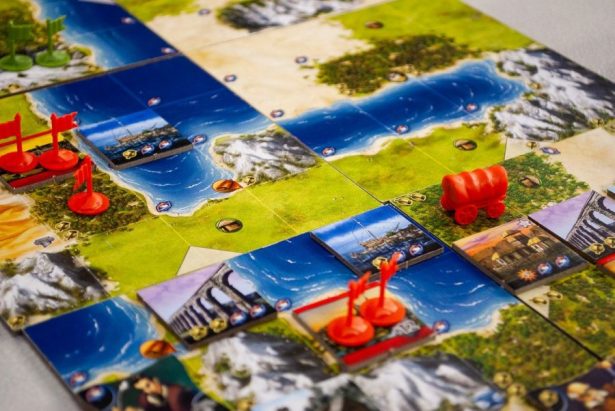
All sort of games have a really good board-game tie-in, from the aforementioned Fallout Board game to Civilization, Warhammer and anything in between. If you are a huge fan of a particular game, you will definitely love the board game experience which will manage to always bring in something new.
2. No external hardware required to play
This means: no DRM, no artificial constraints on a game’s shelf-life, no “your buddies have to buy a copy if they want to play with you,” no internet connection always required.
Board games are built to last until the cardboard rots. And even then you will probably be able to buy a replacement.
You’ll never say “Man, I wish I could play Carcassonne, but IKEA’s next-generation of gaming tables are incompatible with all my old games!”
Even better, you won’t have to worry about buying digital versions of games you already own just so you can play them on your handheld… or whatever the board game equivalent of that would be.
Portable dinner tray? It’s one of the perks of choosing not to surf the wave of high-tech: 20 years from now, you’ll be able to break out any game you purchase this year and have exactly the same experience, except for a few wrinkles on the players’ faces. That’s assuming, of course, that the little bits don’t get devoured by the couch cushions.
There is one downside to this entirely analog design, however. Because their bits and bobs have to be created physically for every copy of the game sold, board games are far less congenial to the mass production runs most digital media enjoy.
Eventually, board games go out of print, and this tends to happen with far more regularity than their disc-based counterparts, and their long shelf life only makes this problem seem more pronounced. It’s tough to emulate cardboard, as well, so the best you can often do is rely on a nostalgic publisher picking it up for a reprint.
This leads to the existence of so-called “grail games” – board games that gamers spend years scouring thrift sales and auctions hoping to discover, and generally go for exorbitant prices from sellers who know what they’ve gotten their hands on.
One such example is the 1979 Avalon Hill version of Dune, which can be had for as much as $199 on various websites out there.
But, at the same time, you never know when a current board game you own becomes a real treasure. Sure, your non-Fallout friends might not love the board game (totally not talking from my own experience, ahem!) But 20 years from now, it might sell for $5,000 as you have the only copy left in the world. Unlikely, but you never know…
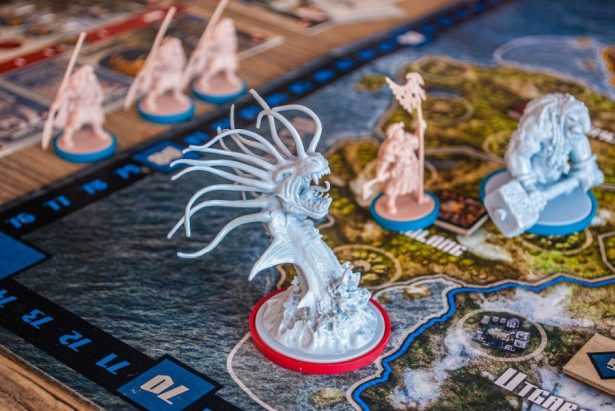
3. Your non-gamer friends are more likely to play with you
For those of us who’ve been gamers our entire lives, it’s easy to forget just how complex and unintuitive video game controls actually are.
Almost all games made today are predicated on a handful of essentially identical control schemes – if it’s a first-person shooter, you can bet your butt that you’ll be aiming with one stick and moving with the other (or, if you’re on a PC, doing the same thing with a mouse and keyboard).
If it’s a third-person action-adventure title, you’re probably still controlling the camera with the right stick and moving around with the left.
Developers don’t want to venture far from these kinds of control setups because they know it’s something their core audience is familiar with. Think of the last game you played with a completely new, completely unintuitive control scheme and you will know the frustration non-gamers feel.
Let’s not forget that any title aimed at core gamers is going to assume you’re already comfortable with these basic mechanisms of moving around the world, so within the first hour it’s going to heap a whole bunch of complexity on top of that.
This isn’t good news for moms, kids, and boyfriends / girlfriends who’re lucky if they can go ten seconds without swerving all over the road, shooting their own feet, or falling off the edge of the world.
Board games don’t have that problem. Don’t get me wrong: there are plenty of complex board games out there with rulebooks thicker than an old game’s physical manual.
However, there’s a key distinction to be made between these two types of complexity. It might take your dad a few turns to remember what happens when he rolls a six in Settlers of Catan, but at least he can roll the dice and put pieces on the board without them veering off into space.
The challenges in board games often deal with a mix of strategy, tactics, and luck; video games, meanwhile, are dexterity tests with strategy, tactics, and luck layered on top of them.
If you give your parents a choice between a board game with the potential for complex long-term strategy, but a simple set of actions to choose from each turn, and a video game with a laughably simple goal that still manages to make them feel like a hung-over walrus attempting to juggle horseshoe crabs while unicycling across a tightrope made of silly string, which one do you think they’ll go for?
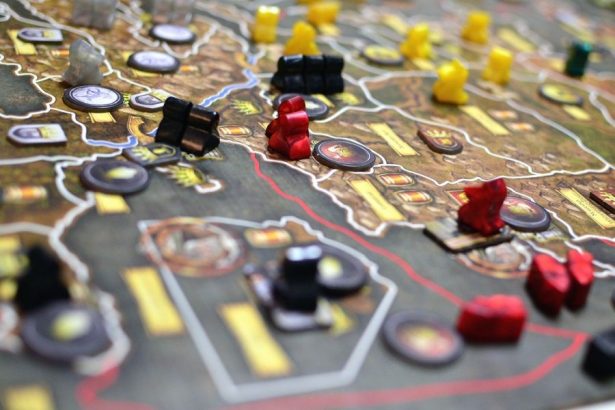
4. They’re infinitely and effortlessly moddable.
PC gamers are used to seeing mods appear in their games. It’s part of the buzz surrounding every major release: “This game is great. I can’t wait for the mods!”
The bigger the release, the more numerous and ridiculous these mods can become – anything from fan-created campaigns to physics screwage to anything else you can think of. Oftentimes, fan-created mods can even fix major aspects of the game before the publishers get around to it.
Console gamers are not so lucky, and usually have to content themselves with DLC if they want anything added to the game after release.
But even in the world of PC gaming, there’s a long, arduous road between coming up with a mod and actually implementing it, and the majority of gamers don’t have the necessary skills to do anything but sit back and hope their personal priorities are shared by the intrepid coders of the interwebs.
With board games, that gap between wanting to change the game and actually doing it is so narrow as to be almost nonexistent.
After all, when you purchase a board game, what you’re really buying – for better or worse – is a bunch of discrete components (pieces of cardboard, cards, dice, etc.) and some suggestions for what to do with them.
Really, that’s all most rulebooks are: suggestions for how to make the pieces of the game interact in meaningful ways. Nothing’s hard-coded into the game except ink and dye. Start looking at it that way, and watch your new board game magically morph from a fairly entertaining, but constrained, activity into an endless toybox to Minecraft or Garry’s Mod.
Changing the game is as simple as deciding how you want to play it differently, and then playing it that way. You’re not even constrained to the bits in the box: with a little ingenuity, it’s a snap to add new pieces or take them away as necessary. What’s more, those changes can be as subtle or as bold as you want to make them.
How many video games have you bought on a whim, then resold or simply left rot a month later, either because you ran out of things to do or it just couldn’t hold your interest? That will never happen with a board game.
There’s literally nothing stopping you from playing the way you want to play, every time. It’s brilliant.
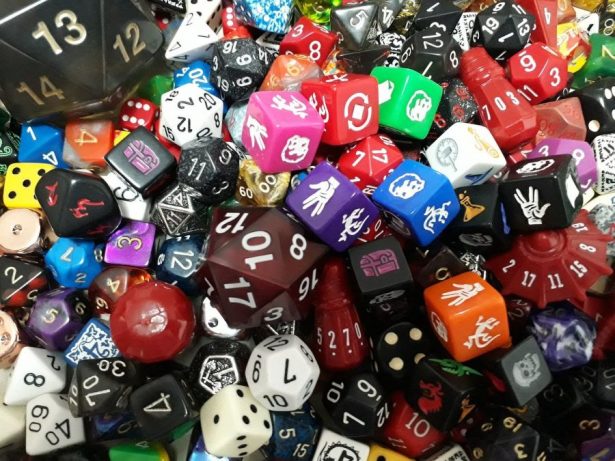
5. Couch multiplayer
Seriously, when did video game developers decide that gamers were too cool to actually play games face-to-face, in the same room with each other, looking at the same TV?
Remember those epic Street Fighter 2 tournaments of yesteryear? Remember fragging your buddies over popcorn in Goldeneye? Remember Donkey Kong Country? Remember when you could play games and have a social life, at the same time?
And we didn’t even have the humongous TV screens that we have today. They make split screen multiplayer even easier. But for some reason, that is no longer a thing. Some of us still love couch multiplayer, though.
And if you don’t, you still have to give it a try and see how amazingly brilliant it really is.
Board games haven’t forgotten this, fortunately. They remember what it’s like to have five of your buddies over for beer, games, pretzels, and name-calling.
Not only is this still a possibility in board games, it’s the norm. You might say it’s their entire purpose, taking away the awkward single player board games.
And that’s a very, very good thing. I’m not saying online multiplayer is inherently bad, but as soon as couch multiplayer stopped even being an option in the majority of console games, something was very, very wrong with the world.
This also means that you don’t need an internet connection to play a board game. You don’t need a buddy with their own copy of the game, and their own hardware to play it on. You just need you, and your friends, and probably a table. You don’t even need the table as long as you have a relatively uncluttered floor. I could go into detail about why this is such a good thing, but I don’t think I need to. You get it. You remember.
Thus concludes my list of reasons video gamers should show interest in board games. You don’t have to start with DnD from the beginning and invest in the best dice set out there… take it slow and enjoy the ride. You will love it, I guarantee!
- The 15 Most Simp-Worthy Characters in Genshin Impact - April 15, 2024
- Cyberpunk 2077 Side Missions Guide - April 12, 2024
- Which Life Path Should You Choose in Cyberpunk 2077? - April 12, 2024

